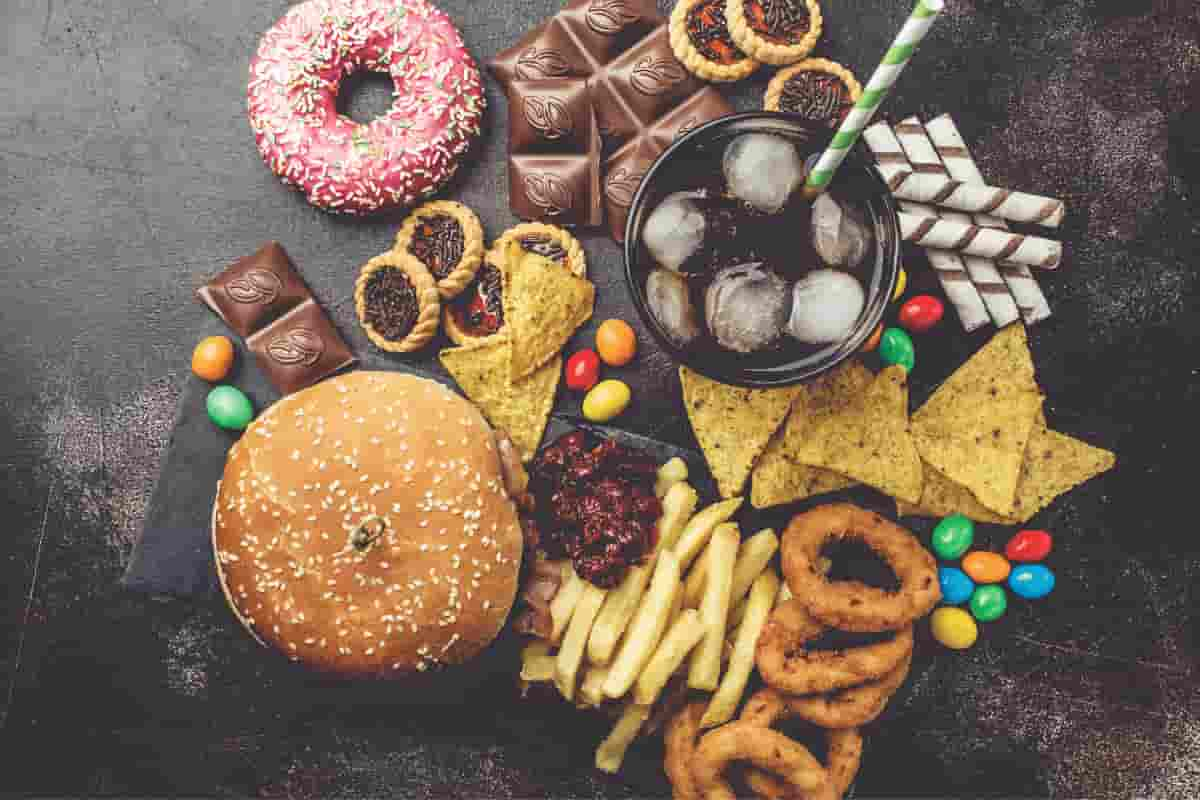4 Tips for Dealing with Stress Eating & Cravings

Whether it’s a craving for sweets or salty snacks, most of us have experienced the feeling of wanting food to help us deal with feelings of stress and fatigue.
These cravings can feel insatiable. They can also leave you feeling ashamed, guilty, and maybe even physically uncomfortable after you’ve eaten. Perhaps they lead to even more stress than when we started. Here’s how to understand stress eating and set yourself up for success the next time cravings hit.
Is there a link between menopause and stress?
Yes! Women in menopausal transition report greater stress levels and lower quality of life than during other life phases. It’s not news to you that physical, mental, and social changes can all combine to make for a uniquely stressful time.
Symptoms like hot flashes, sleep disturbances, and mood shifts can be stressful to navigate. Plus, many women in the menopause life stage find themselves bearing the burden of the “sandwich generation” taking care of both their children and their parents at the same time.
Does menopause cause stress eating and weight gain?
The physical and mental stressors that show up during menopause can certainly affect your appetite.
Stress-related eating helps us escape or avoid difficult emotions, like stress. Research has shown that people who have higher cortisol levels (the “stress hormone”) are more likely to stress eat as a coping mechanism.
Our food choices change under stress, as well. People who feel stressed are more likely to pick items higher in fat and sugar, possibly because these foods are better at activating the reward response in our brains.
When does “stress eating” become unhealthy?
Eating in response to emotions is not inherently wrong or unhealthy. The emotional power of food is a big part of the human experience. This can be a wonderful thing: consider the comfort of tasting a dish that brings you back to your childhood or a treasured memory.
However, we more often think of “emotional eating” in the context of coping with difficult emotions like stress or sadness. While food can be a short-term comfort, it does not address the root cause of our feelings and often leaves us feeling worse than when we started.
Stress eating can have long-term consequences, too. Numerous studies have found a strong link between stress levels and weight gain.
4 Tips to Help You Manage Stress Eating
1. Give your body the fuel it needs
If you struggle with stress eating and cravings at night or after getting home from work, it’s important first to evaluate whether you’re adequately nourished during the day.
What you may experience as cravings may simply be hunger in disguise. Many women under-eat throughout the day in an attempt to lose weight, yet this approach backfires when an under-fueled body drives you to quickly available but less healthy food choices.
Most adults need to eat about every 3-4 hours, with a good source of protein at every meal and snack. If you start nourishing yourself more consistently, you may be surprised to find how much better you feel in the evenings.
2. Notice and name your underlying emotions
If emotions are running high and you’re starting to crave food, take a moment to check in. What emotion are you feeling? Be as specific as possible.
While it sounds like a small action to take, explicitly naming your emotions is crucial. It helps you identify the triggers for emotional eating in order to notice patterns.
Identifying recurrent emotions also helps you realize when you might need to make a change in work, relationships or find extra support from a mental health professional.
3. Find alternatives
It is OK to occasionally use food when we need a pick-me-up. It’s only an issue when food is your only strategy for managing stress.
Think about the feelings that most often trigger emotional eating for you: anxiety, loneliness, boredom, or stress. Brainstorm a “menu” of items you can do instead.
Write it down so that your cues are at your fingertips next time the urge to emotionally eat arises. For example, if you struggle with anxiety you may choose to go on a walk with your favorite podcast, read, call a friend, or take a shower.
4. If it happens, give yourself grace and move on
Despite your best efforts, emotional eating will still happen on occasion.
When this happens, reflect on the experience, determine if there are lessons to be learned, and move on. You were simply using a tool in your “toolbox” for managing emotions, and next time you can try a different one.
Sign up for more unique women’s health content
By submitting this form, you agree to the Lisa Health Privacy Policy and Terms of Use


